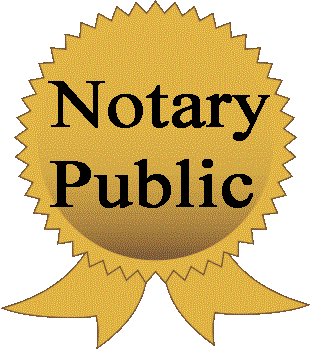|
Trust is important in modern society. In legal matters, causation is the casual relationship between conduct and result, in which business dealings between strangers are the norm rather than the exception.
Trust enables sensitive documents from deeds for real estate property to contracts promising essential services, to be exchanged with confidence. Without it the consequence would be disorder, and increased threats of fraud. Even though we must trust strangers to conduct business, knowing as much about the transacting parties as possible to assure that its agreements and promises are made reliably is important therefore, a process that enables confidence and engenders trust, has increased, it is a reliant system that maintains the rule of law, preservers the integrity of an agreement, and ensures the authenticity of a transaction. This process is in place and working well, though it is often misunderstood and unfairly criticized. That process is called Notarization and is essential and more relevant than ever. Notarization: Why is it important? Notarization dates back thousands of years, the process has represented trust, assurance and legitimacy of official documents backed by a governing body. Although numerous documents are freely exchanged in our society, individuals and organizations require greater guarantees of trustworthiness and accuracy relating to certain agreements. Notarization in-fixes a written document with unspoken intention and commitment, providing a secure solution that gives trust a material form. It is the official certifying process that renders documents worthy of the public trust, and offers assurance that a document is authentic, that its signature is genuine and that a signer acted willingly and intended the terms of the document to be in full force and effect. An individual's acceptance, consent or signature taken separately or even together cannot deliver the security and certainty that notarization provides. Individuals entering in to agreements personally appear before an impartial and unbiased Notary Public, are identified as the person they claim to be and acknowledge that they signed voluntarily. Importantly the resulting notarized document becomes distinguishable from any other because of the seal and official, signature of the Notary Public. Different Notarial acts or Notarization's Acknowledgment: Is generally performed on documents controlling or conveying ownership of assets; example of those documents are: real estate property deeds, legal documents such as powers of attorney and sometimes trust and wills. The signer must appear in person at the time of Notarization to be positive identified and to declare that the signature on the document is his or her own, that it was willingly made and that the provisions in the document are intended to take effect as written. This notarial act is authorized in 50 states and jurisdictions. Jurat: Is typically performed on documents that are critical to the operation of the court system. Such documents include affidavits and depositions. For a jurat, the signer must appear in person at the time of Notarization to sign the document, and to recite aloud an oath or affirmation promising that the statements in the documents are true. A person who takes an oath or affirmation in connection with an official proceeding may be prosecuted for perjury should he or she fail to be truthful. Certified Copies: The copy certification is performed to confirm that a reproduction of an original document is true, exact and complete. Examples of those documents are: college degrees, passports and other documents which cannot be copy-certified by a record office such as a bureau of vital statistics or county recorder's office . This notarization is not authorized in every state but in the jurisdiction where it is allowed, may be executed only with certain original documents. Each state has its own laws governing the performance of Notorial acts. The Notary Public: Every Notarization is performed by a Notary Public. Notaries must apply to a state agency typically the secretary of state. The role of a notary Public cannot be replicated by individuals in the general public. Fewer other individuals have the requisite training experience and impartiality necessary to positively verify the identity of a signer, assure willingness and confirm the act of acknowledgement or administration of an oath or affirmation. This is why Notaries should receive no personal benefit from the transactions they notarize. They must also never refuse to serve a person due to race , nationality, religion, politics, & sexual orientation. Impartiality also means that Notaries must operate independently and resist improper or illegal requests or demands of customers, friends or family members. Notaries are accountable for following the law and have unlimited financial liability for any harm caused another person by their negligence or intentional misconduct. Notary Laws in most states requires that document signers appear in person before the Notary at the time of Notarization to authenticate their identity and their intention that a particular document or transaction to be in full force and effect. Yet this is the law that Notaries are most often pressed to violate. Today, Notaries are now being used to verify the identity of individuals in a variety of functions of situations, even for electronic transactions or communications in which confirmation of an individual's identity and the authenticity of an accompanying electronic signature must be established , why? because of the Notary's familiarity with verifying identity , as well as for their impartiality, Notaries: Ensurers of Trust for Today's Business The Notarial act is the foundation of trust and the Notaries who perform them are society's guarantors of authenticity and integrity.
0 Comments
|
Archives
May 2024
Categories |


 RSS Feed
RSS Feed